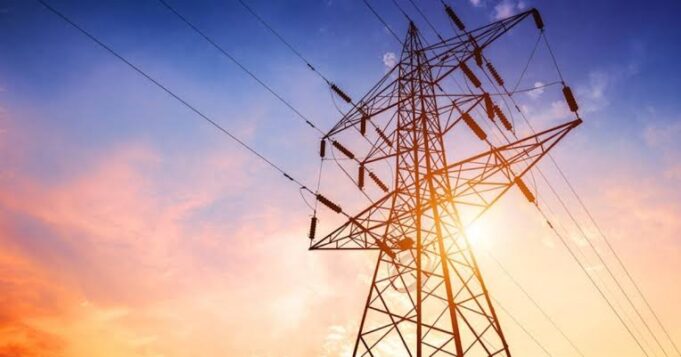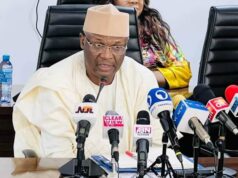The Federal Government has outlined its ambition to provide Nigerians with at least 20 hours of daily electricity by 2027, contingent on boosting investments in Nigeria’s oil and gas sector, which it admits are currently insufficient.
Olu Verheijen, the Special Adviser to the President on Energy, made this announcement during the Energy Week in Cape Town, South Africa.
In a statement released by the State House Director of Information and Publicity, Abiodun Oladunjoye, Verheijen emphasized the government’s commitment to improving power supply, stating, “By 2027, Nigeria aims to ensure 20 hours of electricity daily for consumers in urban areas and industrial hubs.”
This ambitious target is being pursued amid ongoing challenges with the country’s national power grid, which has suffered frequent collapses.
On Tuesday, the grid collapsed for the 10th time since January 2024, leading to widespread blackouts across the nation.
The government has attributed these failures to aging infrastructure, poor maintenance, and chronic underinvestment in the power sector.
Despite an installed capacity of approximately 12,500 megawatts, Nigeria often generates a fraction of this amount, leaving many regions without reliable power.
Verheijen reiterated the government’s determination to revitalize the country’s power infrastructure to provide more reliable electricity to the 86 million Nigerians who are currently underserved.
During the conference, Verheijen outlined several reforms aimed at improving power supply, including enhancing revenue collection, addressing legacy debts, deploying seven million smart meters to reduce losses, and expanding off-grid solutions for remote areas.
She also discussed recent macroeconomic reforms, including the removal of fuel subsidies and foreign exchange liberalization, noting that these steps position Nigeria for significant growth in the coming years.
“Under President Tinubu’s leadership, Nigeria is implementing reforms to unlock its vast economic potential and create jobs,” she said, inviting global investors to join in the country’s development.
Verheijen expressed concerns over Nigeria’s underperformance in oil and gas production, despite the country’s substantial reserves.
She highlighted how Brazil, with only 30% of Nigeria’s oil reserves, produces 131% more oil than Nigeria, primarily due to greater investment in its energy sector.
Since 2016, Nigeria has attracted just 4% of total oil and gas investments in Africa, even as other, less resource-rich countries have seen greater investment flows.
Verheijen pointed out that, in contrast, international oil companies (IOCs) have committed more than $82 billion to deepwater projects in other countries, viewing them as more attractive investment destinations.
Recognizing the need for change, the presidential adviser highlighted the ongoing reforms within the oil and gas sector, which include the introduction of fiscal incentives to encourage investment in deep offshore oil and non-associated gas projects.
This marks the first time Nigeria has outlined a fiscal framework specifically for deepwater gas projects.
Verheijen also discussed efforts to improve the upstream sector by collaborating with the office of the National Security Adviser to provide focused security directives for the oil and gas industry.
Additionally, efforts are underway to streamline the approval process for projects to reduce costly delays. The aim is to cut down the average contracting timeline from 38 months to just 135 days and eliminate the 40% cost premium currently associated with operating in Nigeria’s oil and gas sector.
She further explained that the government’s strategy includes attracting larger investments into midstream and downstream sectors like compressed natural gas, liquefied petroleum gas, and electric vehicles.
These sectors are central to the Presidential Gas for Growth Initiative, which seeks to reduce Nigeria’s reliance on petrol and diesel in key areas such as heavy transport, decentralized power generation, and cooking.
Verheijen also shared that the government has already unlocked over $1 billion in investments across the energy value chain, with two major projects expected to reach a Final Investment Decision (FID) by mid-2025.
These include a multibillion-dollar deepwater exploration project, the first of its kind in Nigeria in over a decade.
Additionally, the government is facilitating the transfer of onshore and shallow water oil assets to local companies with the capacity to boost production, while supporting the transition of international oil companies to deeper offshore exploration and integrated gas projects.
“We are focused on building a sustainable energy future,” Verheijen concluded, emphasizing the government’s commitment to unlocking Nigeria’s energy potential and securing long-term investments in the sector.

















